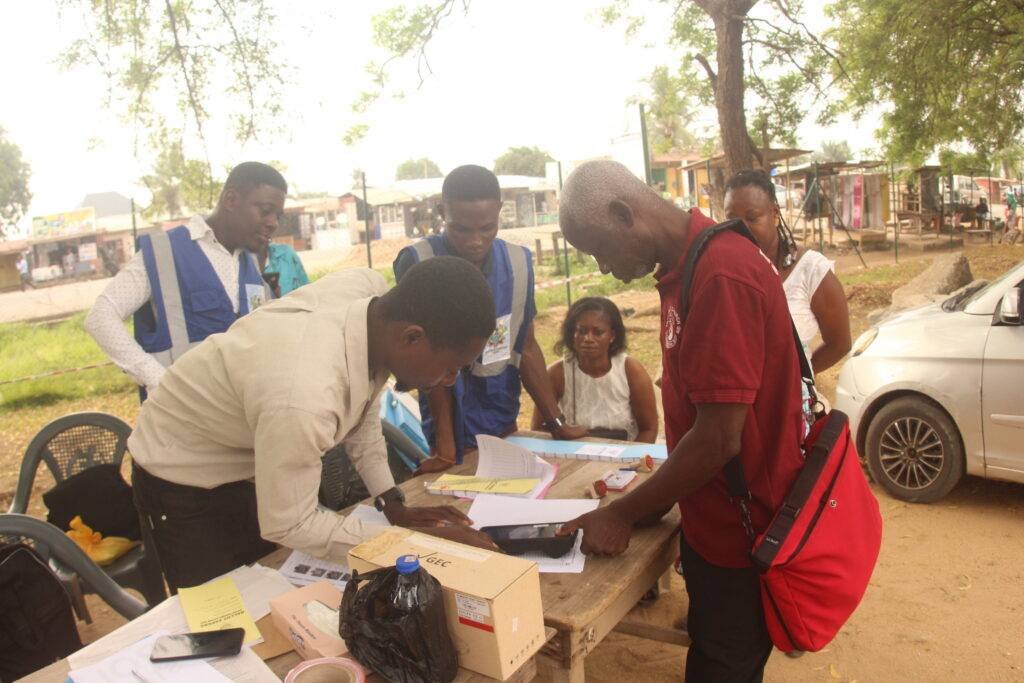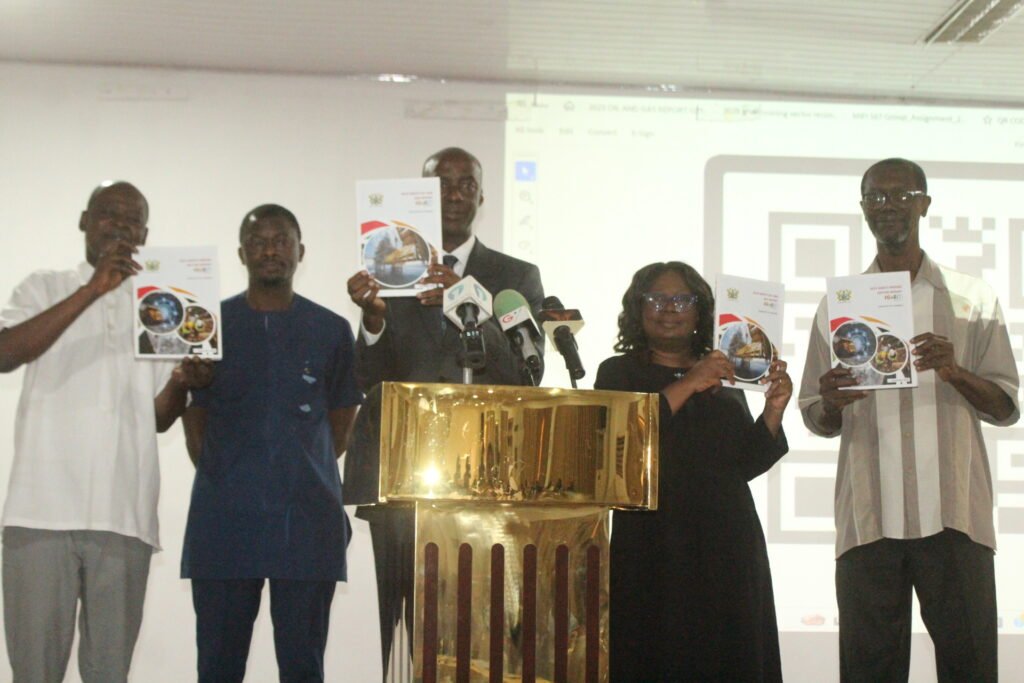
The Media Foundation for West Africa (MFWA) has expressed strong concerns against the decision by the Mahama administration to close down some radio stations.
MFWA says the action of the government raises the thorny issue of possible compromise of fairness and transparency and the danger this poses to press freedom and access to information.

The Minister for Communication, Digital Technology, and Innovations, Sam George, directed the National Communications Authority (NCA) to immediately shut down radio stations operating without valid frequency authorizations.
The enforcement action targets six entities that have violated Section 2(4) of the Electronic Communications Act, 2008 (Act 775) by failing to renew their authorizations, fulfill statutory payment obligations, or submit required documentation within the stipulated timeframe.
The affected stations are:
- Fire Group of Companies, Sunyani – 90.1MHz
- I-Zar Consult Limited, Tamale – 89.7MHz
- Abochannel Media Group, Adidome – 105.7MHz
- Okyeame Radio Limited, Bibiani – 99.7MHz
- Mumen Bono Foundation, Techiman – 99.7MHz
- Osikani Community FM, Nkrankwanta – 99.7MHz
According to the Ministry, the failure of these stations to renew their licenses means their operations have lapsed by law, rendering their continued broadcasting illegal.
But in a statement, MFWA said that “We, however, have some reservations. First of all, radio plays a crucial role in promoting inclusion and reflecting divergent opinions in the political terrain. Its status as the main source of information and its impact on shaping public opinion makes it a critical tool that politicians wish to control. Consequently, any intervention in the broadcasting regulation domain by politicians raises suspicions of possible political targeting and favouritism. In this regard, the Ministry would have helped the cause of transparency by publishing the full data on “the recent audit” it referred to. This would enable the public to identify all radio stations in good standing alongside the defaulting ones. This way, perceptions and suspicions of selective enforcement of the law would be banished, and fairness would be seen to be done. We have, therefore, often advocated and hereby reiterate, that the relevant laws are amended to transfer the broadcast licensing and regulation functions of the NCA to the independent National Media Commission.”
Below is the full statement from MFWA…
The suspension of seven private radio stations by Ghana’s Minister for Communication, Digital Technology, and Innovations raises once more the thorny issue of possible compromise of fairness and transparency and the danger this poses to press freedom and access to information.
“Today, in two separate cases, I have directed the @NCAGhana to suspend and enforce a prohibition of broadcast on seven (7) radio stations in total,” the sector minister, Sam Nartey George announced on his X account.
According to the Minister, one of the affected outlets, Bawku-based Gumah FM, was shut down on national security grounds. The action, according to the Minister, was based on the advice of the Upper East Regional Security Council (REGSEC), which alleges that the station is being “used as a platform to incite violence, disrupt public order, and escalate tensions in the region.” The Ministerial directive was issued under Section 13(1)(e) of the Electronic Communications Act, which empowers the NCA to revoke frequency authorisations in the interest of national security and public order.
The Minister explained that the six remaining stations, on the other hand, were shut down for broadcasting without a valid frequency authorisation contrary to Section 2(4) of the Electronic Communications Act, 2008 (Act 775). The affected stations are Fire Group of Companies (Sunyani 90.1 MHz), Zar Consult Limited (Tamale 89.7 MHz), Abochannel Media Group (Adidome 105.7 MHz), Okyeame Radio Limited (Bibiani 99.7 MHz), Mumen Bono Foundation (Techiman 99.7 MHz), Osikani Community FM, Nkrankwanta (99.7).These stations failed to renew their authorisations and fulfil statutory payment obligations according to the Minister.
The Media Foundation for West Africa (MFWA) acknowledges that the shutdowns are in line with the law and welcomes the enforcement of standards in order to sanitise the airwaves.
We, however, have some reservations. First of all, radio plays a crucial role in promoting inclusion and reflecting divergent opinions in the political terrain. Its status as the main source of information and its impact on shaping public opinion makes it a critical tool that politicians wish to control. Consequently, any intervention in the broadcasting regulation domain by politicians raises suspicions of possible political targeting and favouritism. In this regard, the Ministry would have helped the cause of transparency by publishing the full data on “the recent audit” it referred to. This would enable the public to identify all radio stations in good standing alongside the defaulting ones. This way, perceptions and suspicions of selective enforcement of the law would be banished, and fairness would be seen to be done. We have, therefore, often advocated and hereby reiterate, that the relevant laws are amended to transfer the broadcast licensing and regulation functions of the NCA to the independent National Media Commission.
Secondly, in the case of Zumah FM, the accusations against the station relate to the content of its broadcast which is the regulatory domain of the independent National Media Commission (NMC). While the accusations may be tenable, we cannot allow a “tribunal” of partisan political players such as the sector minister, the Regional Minister, the Director General of the NCA, the National Security Coordinator, among partisan persons, to prosecute, while being themselves the complainants. Even if the decision was based on intelligence advice, the facts and evidence must be put before the NMC for it to recommend the shutdown if convinced. We are afraid if this trend is entrenched, critical broadcast stations can be shut down, ostensibly over national security concerns, but in reality, for political reasons.
Finally, it is instructive that Section 2(9) of the NCA Act 775, charges the NCA to “pay particular attention to the provisions of Chapter 12 of the Constitution.” Interestingly, Chapter 12 of Ghana’s 1992 Constitution, as is widely known, sets up the independent National Media Commission (NMC) under Article 166, with a mandate to ensure the highest journalistic standards and settle complaints made against the media.
Unfortunately, the recent shutdowns, like several others under the Nana Akufo-Addo government (2017-2024), have been carried out without recourse to the NMC. The MFWA fears that if this trend is entrenched, critical broadcast stations can be shut down, ostensibly over national security concerns, but in reality, for political reasons. Such a scenario will have dire consequences for press freedom and media pluralism.
We therefore urge the current government to pause, reflect and consult the NMC when taking a decision to sanction a broadcast station, particularly over alarming content. Ultimately, we call for dialogue leading to a decision to amend relevant laws to give the independent National Media Commission the mandate to approve broadcast license applications and recommend sanctions for infractions regarding licensing conditions.
The post Closure of radio stations: Mahama govt is treading on an old dangerous path – MFWA first appeared on 3News.
Read Full Story




















Facebook
Twitter
Pinterest
Instagram
Google+
YouTube
LinkedIn
RSS